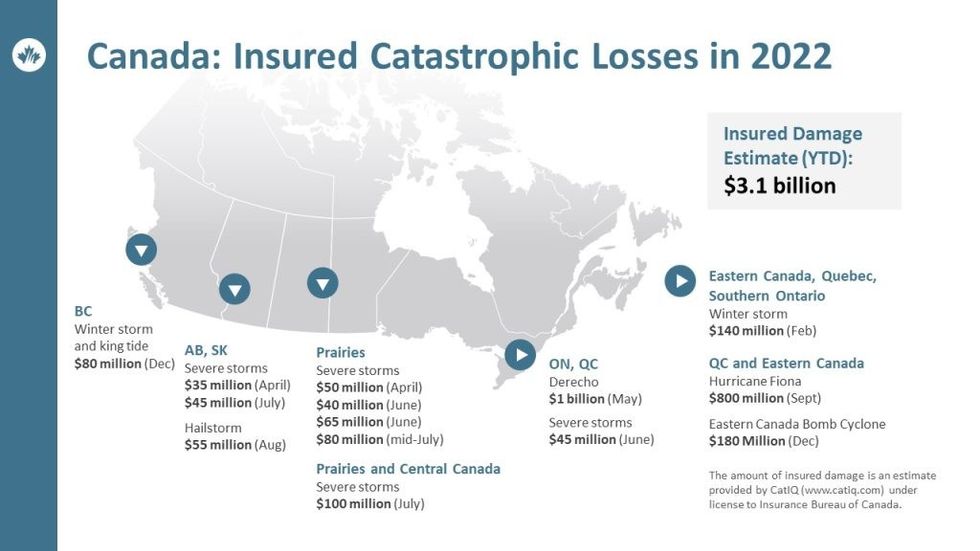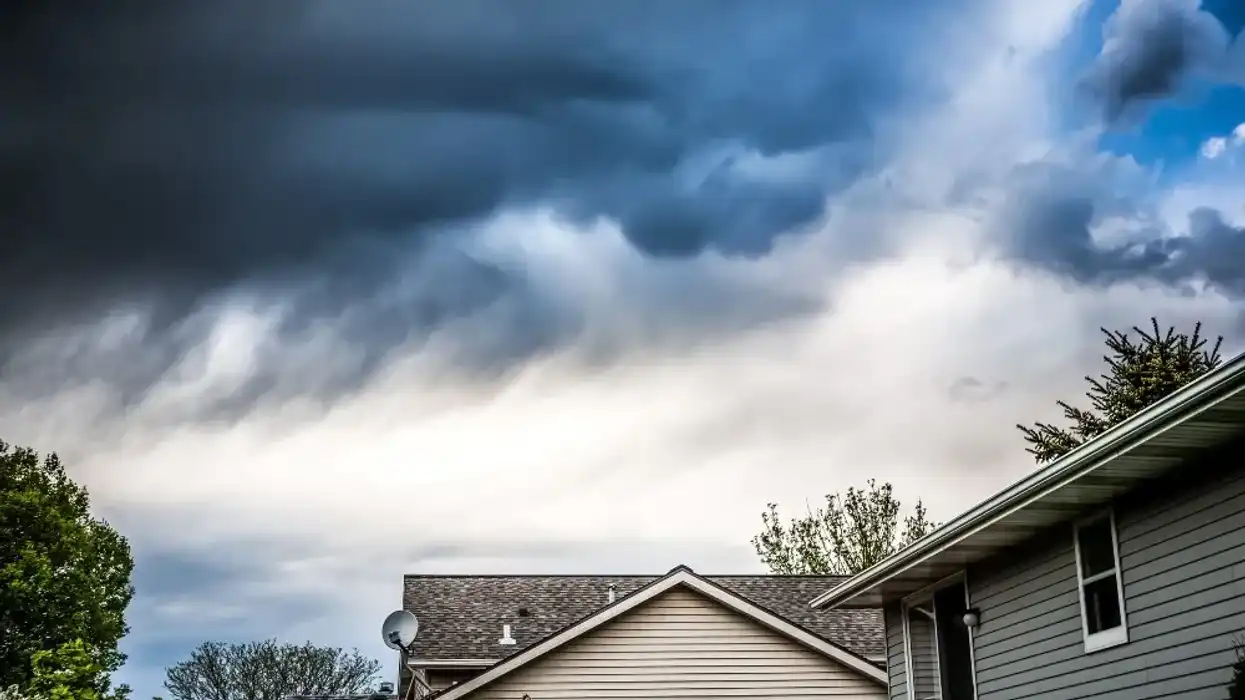Climate change is very real, and while its effects may not always be clearly noticeable, the brunt of its impact can be seen in the amount of insured damage suffered as a result of severe weather. By that metric, climate change is getting worse and worse here in Canada.
On Wednesday, the Insurance Bureau of Canada (IBC) published its annual report of insured damage suffered as a result of severe weather, and 2022 saw a grand total of $3.1B in damages, a significant increase from the $2.1B suffered in 2021.
That $3.1B suffered in 2022 is the third-worst year in Canadian history, with no single weather event accounting for the majority of the damage. This is unlike 2016, which saw the Fort McMurray fires in Alberta account for nearly 75% of the $5.96B suffered in what remains the worst year on record.
Rather, numerous severe weather events around the country accounted for significant portions of the damage, led by the derecho -- a longer-living, more-severe tornado -- that hit Ontario and Quebec in May and accounted for $1B in damage. At the time, the IBC estimated the damage to be $875M, the sixth-worst single-event on record, but this updated estimate would bring it to fifth-worst, tied with the 2013 Toronto floods.
The second-most severe weather event of 2022 was Hurricane Fiona, which hit Atlantic Canada in September and accounted for $800M in insured damage (originally estimated at $660M).
Third-most severe was the series of storms that hit Western Canada and the Prairies in the summer, which included multiple thunderstorms and tornadoes that resulted in a total of $300M in insured damage.

Zooming out, while 2022 was the third-worst year on record, perhaps more alarming is the fact that of the 10 worst years on record, eight have come since 2012, and five have come after 2017, a likely indicator that records could very well continue to be broken in the years to come.
"Canada is increasingly a riskier place to live, work and insure," said IBC's Vice President of Climate Change and Federal Issues, Craig Stewart. "Governments have spent far too little attention to adaptation in the discourse over climate policy."
On the smaller, individual homeowner level, the IBC says that this increasing risk has resulted in property insurance becoming less affordable, or even completely unavailable in some cases.
RELATED: How Climate Change is Affecting Property Insurance, Mortgages, and Buyers
"We're seeing early signs that property insurance may become less affordable or even unavailable as global reinsurers shift capacity away from riskier countries," Stewart said. "Now is the time for Canadian insurers and governments to partner on a National Flood Insurance Program to ensure Canadian homeowners remain financially resilient in the face of these growing number and severity of events."
In October, the IBC published a joint report with the Canada Mortgage and Housing Corporation that made a series of recommended actions to protect communities and individual homeowners. The biggest recommendation was to create a Real Estate Climate Risk Index that provides a score to capture a property's susceptibility to severe weather events.
So far, the idea has not taken off.
The climate is changing, and so should we, but as has often been the case with actions related to climate change, the changes certainly aren't happening fast enough.





















